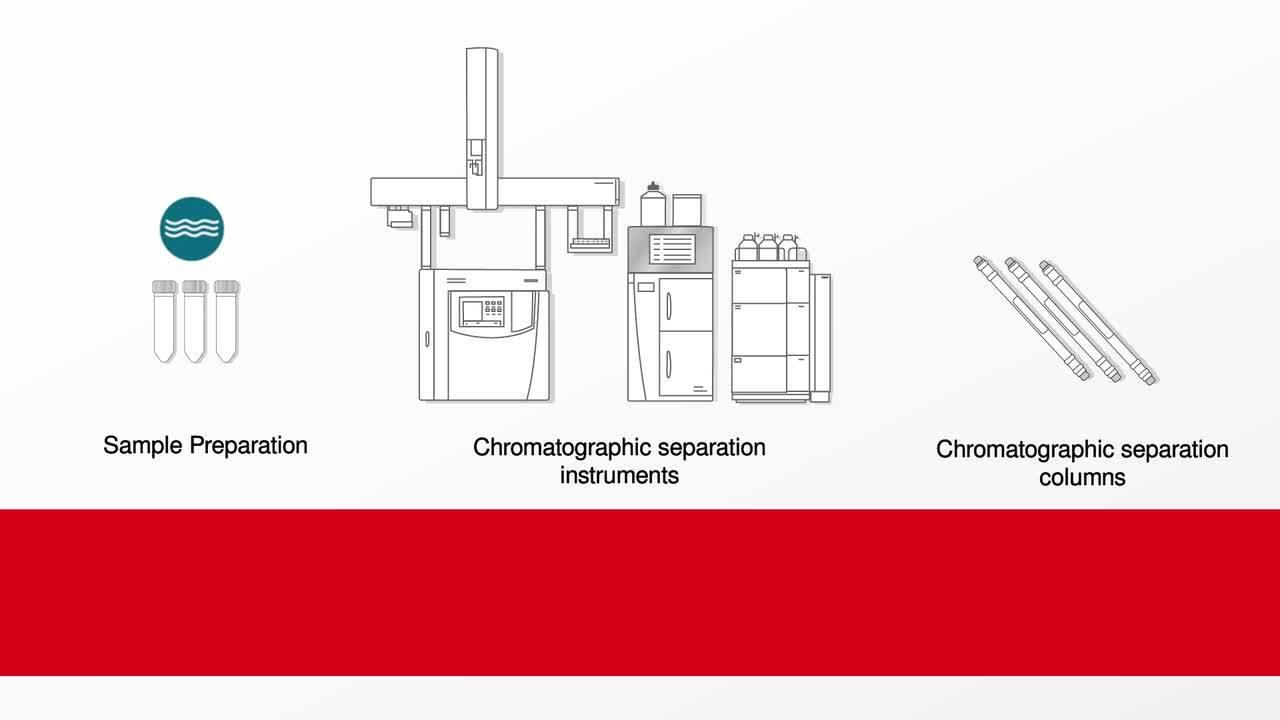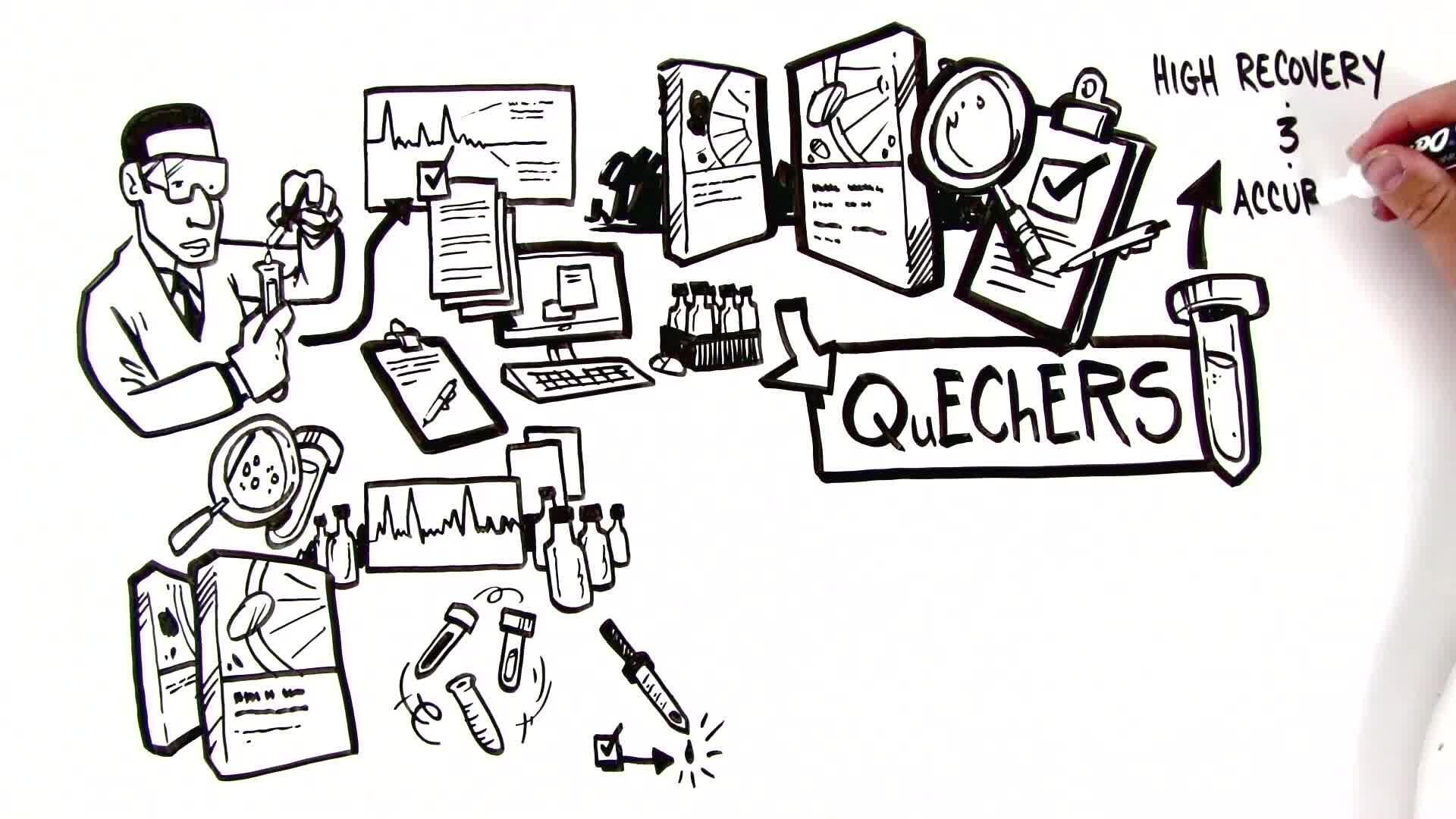Search Thermo Fisher Scientific
Mycotoxin and Biotoxin Analysis

Identifying harmful natural toxins in food and feed
International trade regulations make testing food and animal feed for biotoxins and mycotoxins a critical step before export. We can help your analytical laboratory comply with global testing requirements and ensure that products meet the necessary standards to ensure toxin-free food products.
For More Information
Experts discuss the challenges and future of mycotoxin analysis in food testing
On this page
Workflows for mycotoxin analysis
Food and animal feed can become contaminated due to mishandling during processing or the improper application of crop protection chemicals to prevent spoilage of agricultural produce. We can help you economically and confidently test for prevalent phytoxins and mycotoxins including aflatoxins, ochratoxins, patulin, fumonisins, trichothecenes, zearalenone, deoxynivalenol, and others.
Economical quantification of mycotoxins and phytoxins in cereal using LC-MS/MS
With simple, fast sample preparation, this economical and robust method can be used for the quantitation of all 11 legislated mycotoxins worldwide and 37 more that are either already legislated in feed or are prospects for further legislation. The lowest maximum residue levels (MRLs) were reached for all regulated compounds with good precision and reproducibility on five replicates at the limit of detection.
Fast, reliable LC-MS/MS method to quantify mycotoxins in corn-based animal feed
This robust method uses a simple liquid-liquid extraction and a dilute-and-shoot approach to achieve high analyte recovery and reliable quantitation. The method was fully validated in the laboratory four analytical runs with duplicate calibration curves along with 5 quality control sample replicates at low, medium, and high concentrations. The method produced excellent % RSDs for the target analytes over the course of the analytical runs.
Identify and quantify mycotoxins in animal feed using HRAM LC-MS
This method offers an excellent solution for the rapid screening and quantitation of multiple mycotoxin compounds in a single method. The simple QuEChERS extraction procedure from a corn-based animal feed matrix provides an efficient and robust workflow with no further cleanup. All three scan modes studied showed excellent quantitation performance with MS² fragment matching and library searching against highly curated databases.
Fast polarity switching was very effective, with mass accuracies remaining stable across the peak in both polarities, providing plenty of scans across the peak for accurate quantitation. The ability to analyze a sample extract in both positive and negative ion modes, in a single analytical run instead of two, offers a huge productivity advantage.

To help you deliver high quality identification of mycotoxins, we regularly curate our compound and spectral database library for natural toxins to reduce your database development time and cost, while ensuring ultimate confidence and confirmation in the data you report. Though some libraries may have more compounds, these are based on estimated structures developed on lower resolution QTOF instrumentation – lower quality data will give more errors and lower confidence in library searches.
Confirmation of target mycotoxins was performed using MS2 fragment matching and searches against the Thermo Scientific mzCloud highly curated MS2 and MSn data mass spectral database library.
Related application resources
Food and Beverage Resource Guide for Commercial Food Testing Laboratories
Beverage Resource Guide for Commercial Testing Laboratories
Consumer and Brand Protection from Mycotoxins: Detecting Know, Emerging and Masked Mycotoxins
Learn about key considerations for efficient food testing workflows that will help protect brands, human health and the food chain from the risk of emerging and current mycotoxins.
Solutions for mycotoxin analysis
Liquid chromatography and mass spectrometry (LC-MS) workflows enable the analysis of multiple toxins in a single run, with increased confidence and faster turnaround in reportable results, helping you meet your testing demands.
Sample preparation and column chemistry
QuEChERS Dispersive SPE products
- Complete kits provide a quick, rugged, and cost-effective process for the extraction of multiple mycotoxin analytes.
- Higher sample recovery and throughput, reduced labor, and lower reagent and solvent costs enable better productivity and lower costs per sample.
Leveraging complementary selectivity to solve challenging analytical problems
Sample prep and chromatography selection guide
Select chromatography columns and consumables that are optimized for your food and beverage analytical testing.
LC-MS and HPLC system comparison
 Vanquish Core HPLC + TSQ Quantis Triple Quadrupole MS |  Vanquish Flex HPLC + Orbitrap Exploris 120 HRAM MS |  Vanquish Flex HPLC + Vanquish Fluorescence Detector | |
|---|---|---|---|
| Fast, multiple toxin single test analysis |  |  | - |
| Confirmatory ID |  |  |  |
| Quantitation |  |  |  |
| Untargeted quantitation | - |  | - |
| Unknown screen & ID | - |  | - |
| Sensitive |  |  |  |
| Throughput | High | High | Low |
| Quantitation Data analysis software options | Chromeleon CDS TraceFinder | TraceFinder Chromeleon CDS | Chromeleon CDS |
| Unknown characterization and identification data analysis | - | Compound Discoverer | - |
| Online spectral database solution | mzCloud | mzCloud | - |
| Offline spectral database solution | mzVault | mzVault | - |
 = Not applicable = Not applicable |  = Poor = Poor |  = Good = Good |  = Better = Better |  = Best = Best |
Quick links
The ultimate toolset for transforming small-molecule MS data into meaningful insights
Learn how integrated data analysis software, algorithms, and mzCloud or mzVault spectral libraries can address the challenges of small molecule identification for routine and research applications.
Featured video

Expert spotlight: Analysis of complex coffee bean contaminants with high-resolution mass spectrometry
Swedish Food Agency chemists, Susanne Ekroth and Julio Espana, discuss their latest project on identifying contaminants in coffee and share how they were able to merge a multi-residue method with a single-residue method using Thermo Fisher Scientific's innovative technologies.
Data management and analysis software quick links
Related learning centers
Food contract testing lab integrated partnership
Learn how your laboratory can partner with Thermo Fisher Scientific to help you overcome barriers to your lab's success.










